Pound falls and UK borrowing costs rise as Reeves ditches plans for income tax hike – business live
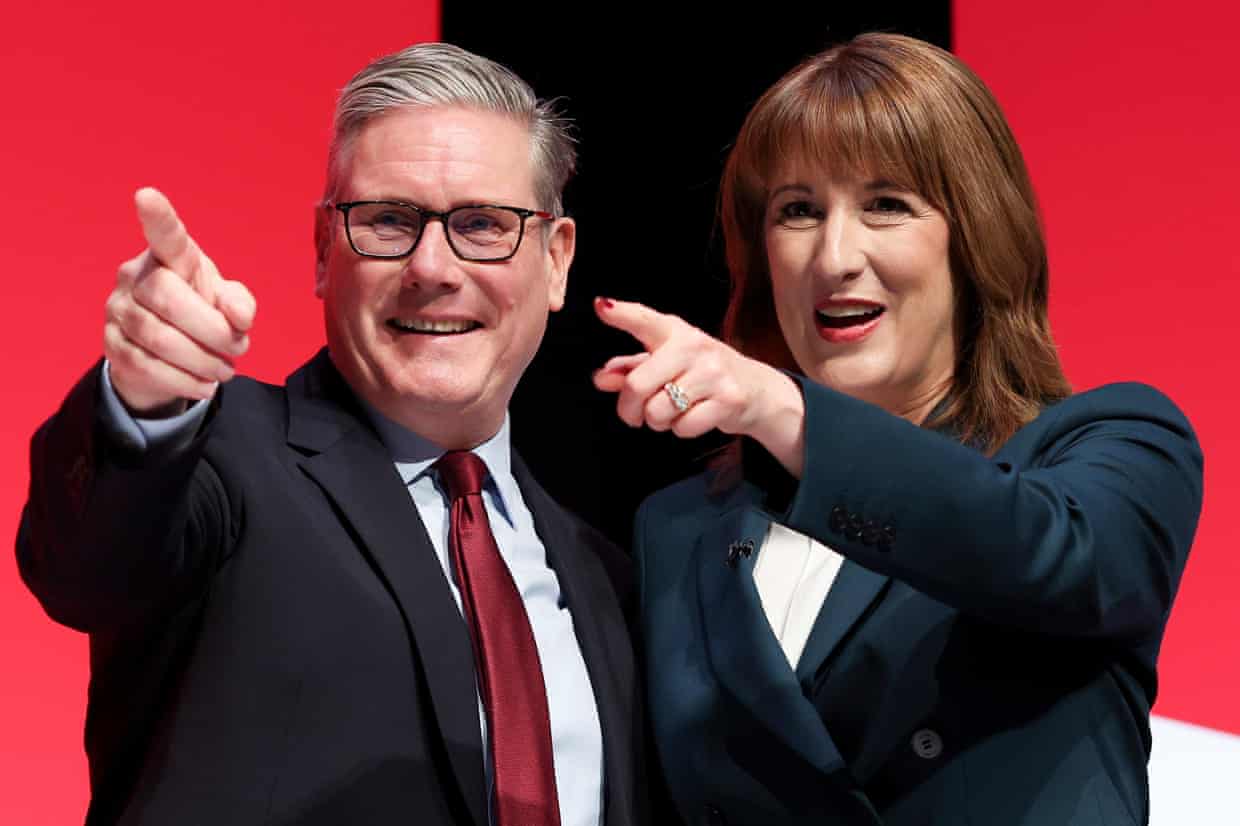
10-year and 20-year gilt yields are on the rise again, as investors try to determine how confident they are about the Labour government’s ability to raise enough funds to offer some fiscal certainty and stability long-term.The 20-year gilt yield is at 5.233%, up 0.125 percentage points.That is the highest level since mid-October.
Estimates by Berenberg suggest that the UK government needs to raise £30bn, or around 1% of GDP, in the 26 November budget into order to get back on course to meet its fiscal target to meet all day-to-day spending with tax revenues by 2029-2030,Berenberg explains that each percentage point increase in income tax rates would raise over £10,5bn by the time that target year rolls around,However, a 2 percentage point increase would be a “simple, relatively efficient and front-loaded mechanism with which to raise over £20bn,” Andrew Wishart, senior UK economist at Berenberg says,But in order to avoid breaking Labour’s manifesto pledge to not “increase national insurance, the basic, higher, or additional rates of income tax, or VAT”, the government is said to be instead looking to lower the threshold at which income tax increases from 20% to 40%.
But simply reducing the threshold from £50,270 per year to £46,000 would still leave the public finances £6bn short of what it could raise through an income tax hike by 2029-30, “thereby making additional hikes in smaller taxes necessary, too,” Berenberg says.Wishart explains:As a result, the likelihood that the government will have to raise taxes again (or cut spending) in the future, in turn generating further bouts of policy uncertainty, has grown.He adds:A smaller and more back-loaded fiscal tightening would therefore damage the government’s fiscal credibility and limit the extent to which the Bank of England lowers interest rates in 2026.That is the straightforward economic explanation for the 7bp rise in the 10-year gilt yield to 4.50% today.
The u-turn also demonstrates a lack of political competence which has probably led investors to increase the probability they attach to a change in the leadership of the Labour party and government.The risk is that the Labour party replaces Keir Starmer and Rachel Reeves with a duo positioned further to the left on the economic policy spectrum and less committed to fiscal sustainability.UK stock indexes are still suffering, with the FTSE 100 losing further ground and trading down 1.3%.There are only three companies trading in positive territory, with banks like Lloyds and NatWest still among the biggest fallers, each down around 3.
3%,Analysts are expecting further easing in bond prices as investors digest the flurry of news on Reeves’ budget plans,Hal Cook, senior investment analyst at Hargreaves Lansdown says: As is often the case with quick reaction to surprising news, it’s likely that these moves are over-reactions and yields definitely have potential to come back down from here,Just because Labour may no longer be planning on increasing income tax, we don’t yet know what they may plan to do instead,Government bond markets definitely have the power to keep government budgets in check, as we saw in the UK with the Truss mini-Budget in 2022 and in the US around Liberation Day earlier this year.
Watch this space.Full story: UK borrowing costs up after markets spooked by Reeves’s income tax U-turnBorrowing costs for the UK have increased and the pound fallen after the chancellor’s extraordinary last-minute decision to ditch tax-raising plans in the upcoming budget.Interest rates on government bonds rose by more than 10 basis points in early trading, putting them on track for their worst day since 2 July, when investors responded to a tearful appearance by Rachel Reeves in the House of Commons chamber.The pound meanwhile dropped 0.5% against the dollar.
The market reaction came after government sources confirmed Reeves had dropped plans to raise income taxes to help close a budget shortfall of about £30bn.The U-turn came despite weeks of warnings to Labour MPs and the wider public that the chancellor might have to break her manifesto pledges on tax to avoid a market meltdown.Reeves has been working on plans for weeks to raise income taxes at the budget, despite having promised not to do so before the election.The chancellor has even invited external experts to brief Labour backbenchers on the difficult decisions they are likely to have to defend.Read more:The pound is now trading down just 0.
24% versus the dollar at around £1.3159.The 10-year gilt yield is now up 0.06 percentage points at 4.49%Across long-dated government bonds, the 20-year gilt yield is now up just 0.
085 percentage points at 5.193% while the 30-year gilt yield is up 0.091 percentage points at 5.324%.We’re now seeing some easing of losses on both the pound and UK gilts, which seem to have followed this Bloomberg report suggesting Reeves has received stronger readings from the Office for Budget Responsibility (OBR).
It suggests the improved forecasts would leave the fiscal hole at a smaller £20bn, versus previous expectations of £35bnBloomberg reports:Chancellor of the Exchequer Rachel Reeves has been able to drop plans to raise income taxes because she received an improved fiscal forecast from the UK’s budget watchdog, people familiar with the matter said.The latest update from the Office for Budget Responsibility moved in a significantly more favorable direction due to the strength of government receipts and stronger wage performance, the people said, asking not to be named discussing sensitive matters.A fiscal hole predicted to be as wide as £35 billion ($46 billion) is in fact now closer to £20 billion, they said.The report adds that the expected productivity downgrade from the OBR has been partially offset by other factors, and that “major tax rises” are still expected to fill the remaining hole in the public finances.HM Treasury has been trying to quell concerns over the reports over the income tax u-turn overnight, issuing a fresh statement to media this morning in response.
A Treasury spokesperson said:We do not comment on speculation around changes to tax outside of fiscal events.The chancellor will deliver a Budget that takes the fair choices to build strong foundations to secure Britain’s future.The chancellor’s income tax rate hike reversal may be interpreted as the Labour government prioritising their public popularity ratings, and stability of the political party, above the need to stabilise the UK’s finances, analysts have warned.Lee Hardman, senior currency economist at MUFG, says:The initial negative reaction for the pound today … is an indication that the government’s fiscal tightening plans are viewed as less credible by market participants without an income tax hike.The decision to drop the income tax hike could be viewed as the Labour leadership prioritising their popularity with the public and the stability of the Labour party over doing what is best to restore confidence in the public finances.
Nevertheless, we still expect the package of fiscal tightening measures to put a dampener on economic growth in the UK and create more room for the BoE to lower rates further.The releases this week of the weaker UK labour market and GDP reports have reinforced negative sentiment towards the pound in the near-term.This has all left investors '“scratching their heads” and expecting a “death by a thousand cuts” kind of budget, if Reeves hopes to find money to fund key policies including ramped up UK defence commitments, according to XTB’s research director Kathleen Brooks:The u-turn on income tax rises, while better for growth in a service-based economy, does leave markets scratching their heads about how to fund scrapping the two child benefit cap, the ballooning benefits bill and Britain’s defense commitments.Instead, the budget is likely to be death by a thousand cuts, in the form of hundreds of tax rises announced on the 26th, which one source called a smorgasbord of fiscal choices for the chancellor.Kathleen Brooks, research director at XTB notes that Reeves’ change of plans is essentially leaving policy pledges unfunded, with the chancellor now faced with finding an alternative way to raise money to fill an estimated £30bn fiscal hole in (checks watch) less than 2-weeks.
Brooks says:This also means that the chancellor has signalled billions of unfunded spending pledges, which the bond market is not fond of,Hence why yields are rising sharply across the curve,The 10-year yield is higher by 10bps, while the 2-year yield is higher by 9bps at the open,30-year yields are taking an even bigger hit and are higher by 12bps,Bond market volatility is not what the chancellor wants to see with less than two weeks to go before the budget.
Essentially, the bond market is warning the chancellor that she cannot merely tax the ‘rich’ to fund her lavish spending pledges.Either she broadens the tax base, or she cuts spending.The pound has taken a hit, falling nearly 0.5% on the dollar to $1.3129 and weakening against the euro.
Meanwhile the FTSE 100 has lost about 1.1%, with its listed banks – often a bellwether for the UK economy – having taken a tumble.Barclays, Lloyds and NatWest all have fallen 3.1-3.5% after the market open.
We’re getting some market moves as investors digest Rachel Reeves’ change in plans on income tax ahead of the autumn budget,In the bond market, the yield on the UK’s 30-year gilt is up 12 basis points, suggesting there is a perception of growing risk to the fiscal position,The yield on the 20-year gilt, meanwhile, was sitting at 5,225%, also up 12 basis points on the dayReuters says this is putting long-dated gilts on track for their worst day since July 2, when a Reeves’ tearful appearance in parliament spooked investors,Culture secretary Lisa Nandy has weighed in on the chancellor’s plans to drop awhat would have been a manifesto-breaking income tax hike this morning.
Nandy told Sky News that Rachel Reeves remains “completely focused” on the public interest, but added it would not be “helpful or right” to speculate about what is in the November 26 budget.When asked if the latest reported u-turn made it look like the Labour government' didn’t know what it was doing, Nandy said:I’ve known the Chancellor well for 15 years now, and I can tell you that she is solely and fiercely focused on the challenges facing the country and doing what is in the best interests of the country.She’s never been shy of facing people down in order to do that in opposition and in government.Over the course of the last few weeks, obviously I’ve had some discussions with her and her team about measures in the budget that may affect my department, proposals that we’re making, and discussions that ordinarily happen across government, and in every one of those discussions, it’s been the public interest that she’s completely focused on.Good morning, and welcome to our rolling coverage of business, the financial markets and the world economy.
We start the day with a u-turn from the Labour government, with chancellor Rachel Reeves set to abandon a plan to raise income tax in her 26 November budget.The chancellor had previously informed the budget watchdog of plans to raise income tax – breaking one of Labour’s key manifesto pledges.But the Guardian has since confirmed that those main measures have been ditched.The Financial Times, which first broke the story, has reported that Reeves may instead look at thresholds at which people pay tax (which is likely to be seen as an income tax rise by stealth).However, Reeves is now likely to have to rely on a string of small tax hikes in order to fill what is expected to be a multibillion-pound “hole” in the public finances, sparked by weaker productivity and u-turns on other policies including cuts to the winter fuel allowances and disability benefits.
On the other side of the world, China is reeling as freshly released data showed factory output and retail sales grew at their weakest pace in over a year in October.Industrial output grew 4.9% year-on-year in October, according to China’s National Bureau of Statistics (NBS) marking the weakest annual pace of growth since August 2024.That was down from a 6.5% rise in September, and fell short of the 5.
5% forecasted in a Reuters poll.Meanwhile, retail sales – a key sign of consumer confidence and spending – expanded 2.9% last month, also marking the worst pace since August last year that was down from a 3.0% rise in September.The figures will pile further pressure on policymakers in Beijing to do more to support China’s export-driven economy, as they face further risks from a trade war with the US and weak domestic demand.
On top of the agenda items below, we’re also expecting a Q2 update from Jaguar Land Rover later this morning.Stay tuned!10am GMT: Eurozone trade balance for Q310am GMT: Second estimate of eurozone GDP in Q3 + employment data
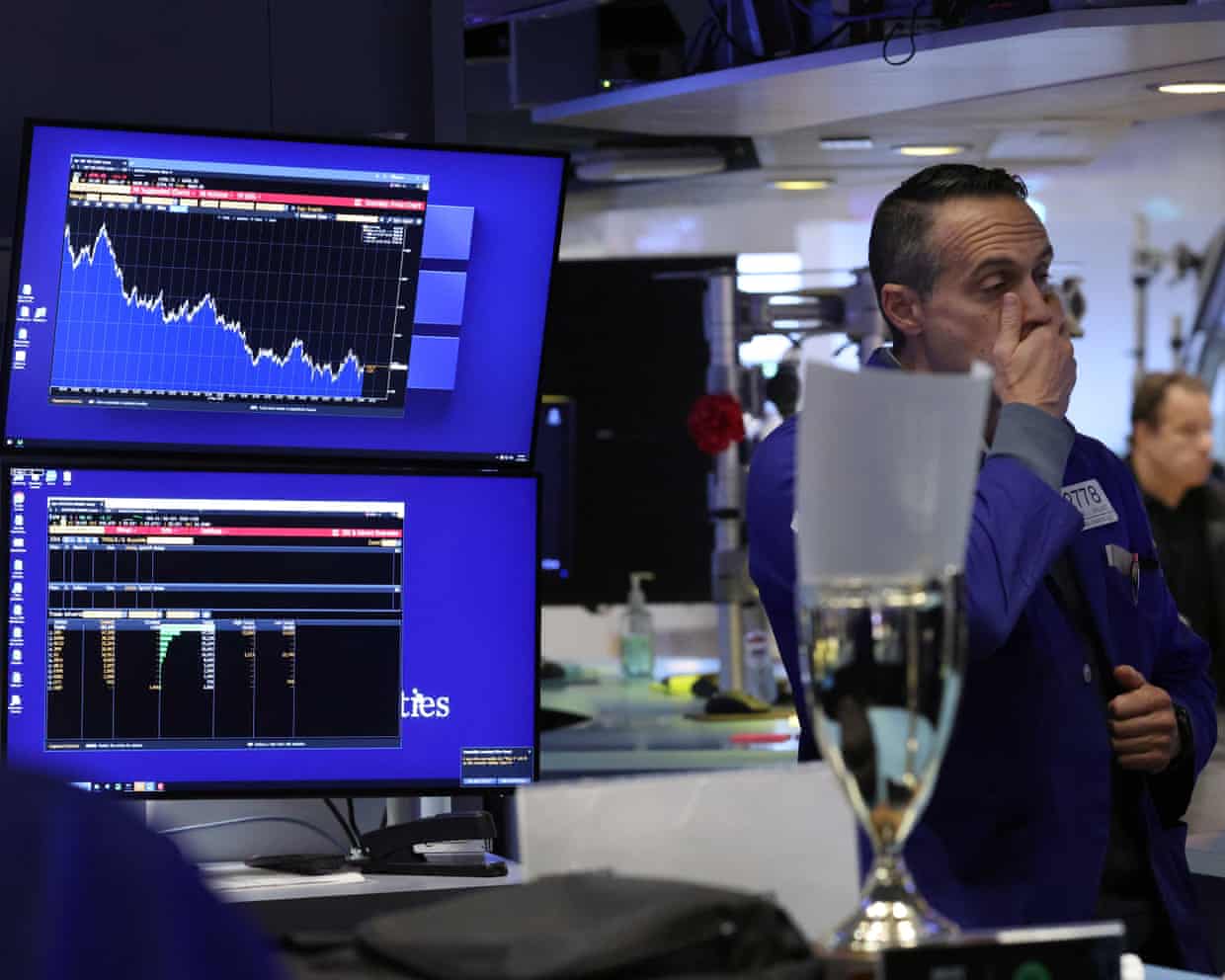
Global markets fall after tech sell-off and fears over Chinese economy
Global markets have fallen after a tech sell-off that fuelled Wall Street’s worst day in a month and weak economic data from China showed an unprecedented slump in investment.The FTSE 100 fell by 1.1% on opening, losing about 100 points, as bellwether banking stocks tumbled. Barclays, Lloyds and NatWest slumped by between 3% and 3.5%

US markets struggle amid tech sell-off and economic uncertainty
Wall Street came under pressure on Thursday, enduring its worst day in a month as a sell-off of technology stocks intensified.After an extraordinary rally around hopes for artificial intelligence that propelled global stock markets to record highs, fears that tech firms are now overvalued loom large.Investors are also braced for the release of a batch of official data on the state of the US economy, amid heightened uncertainty over its strength during the federal government shutdown.The benchmark S&P 500 and the Dow Jones industrial average each closed down 1.7% in New York on Thursday, while the tech-focused Nasdaq Composite dropped 2

EU investigates Google over ‘demotion’ of commercial content from news media
The EU has opened an investigation into Google Search over concerns the US tech company has been “demoting” commercial content from news media sites.The bloc’s executive arm announced the move after monitoring found that certain content created with advertisers and sponsors was being given such a low priority by Google that it was in effect no longer visible in search results.European Commission officials said this potentially unfair “loss of visibility and of revenue” to media owners could be a result of an anti-spam policy Google operates.Under the rules of the Digital Market Act (DMA), which governs competition in the tech sectors, Google must apply “fair, reasonable and non-discriminatory conditions of access to publishers’ websites on Google Search”.Commission officials said the investigation was not into the overall indexing of newspapers or their reporting on Google Search, just into commercial content provided by third parties

Anthropic announces $50bn plan for datacenter construction in US
Artificial intelligence company Anthropic announced a $50bn investment in computing infrastructure on Wednesday that will include new datacenters in Texas and New York.“We’re getting closer to AI that can accelerate scientific discovery and help solve complex problems in ways that weren’t possible before,” Anthropic’s CEO, Dario Amodei, said in a press release.Building the massive information warehouses takes an average of two years in the US and requires copious amounts of energy to fuel the facilities. The company, maker of the AI chatbot Claude, popular with businesses adopting AI, said in a statement that the “scale of this investment is necessary to meet the growing demand for Claude from hundreds of thousands of businesses while keeping our research at the frontier”. Anthropic said its projects will create about 800 permanent jobs and 2,400 construction jobs
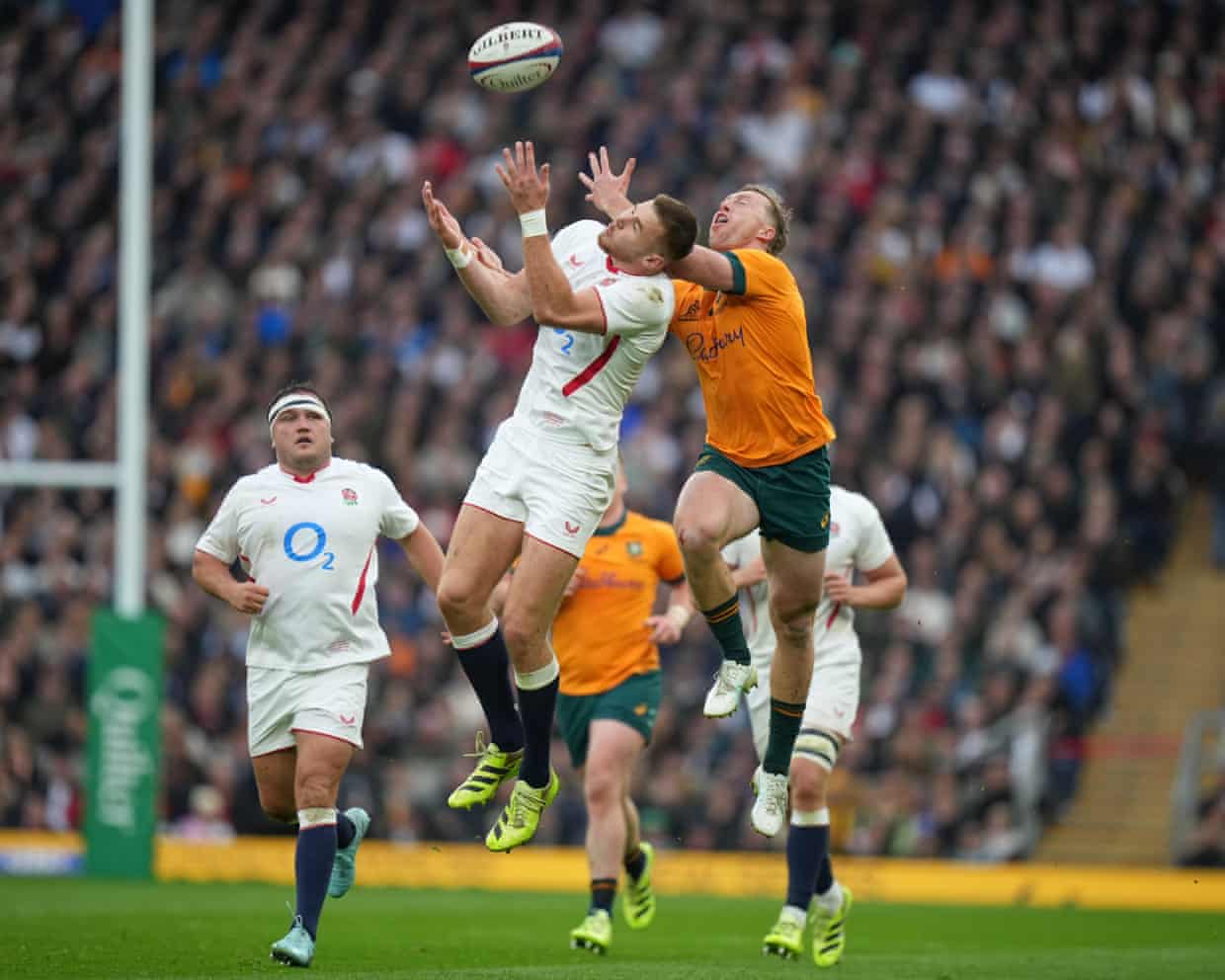
Bomb squads on stacked benches are making it even more crucial to control rugby’s aerial battle | Ugo Monye
Rugby union is a sport of trends and of unintended consequences and what I expect to be the two most decisive factors in England’s clash with the All Blacks on Saturday are inextricably linked. Much has been made of England’s firepower on their bench – New Zealand’s isn’t bad either – and when coaches are able to call upon such quality replacements, often en masse, then the kicking battle becomes all the more important.Because the international game is not currently as fluid as it has been. That isn’t necessarily a criticism, it’s just the way things are at present; a little bit like the Premier League where set pieces and long throws are dominating. Of course we would all love to see flowing, attacking rugby but it’s really difficult because all elite sides favour having 13 or 14 men in the line, they all seem to adopt a blitz defence and the sheer level of physicality means it can be hard to have possession

From conscience to platforming Trump: inside the slow death of ‘woke’ ESPN
“What happened to the Redskins, by the way?” Donald Trump asked in an interview on the Pat McAfee Show that notably did not stick to sports. His call-in appearance on Tuesday’s program to mark Veterans Day was meant to be a major coup for ESPN, the first time Trump had been interviewed on the network as a sitting president. But viewers could have just as easily been mistaken into believing they were watching Fox News.Trump took his usual shots at Joe Biden, claimed credit for the Department for Veteran Affairs’ high approval ratings and declared victory over the Democrats in a government shut down that dragged on for a depressing 43 days. Rather than push back against the political self-promotion, McAfee cheered Trump on before opening the floor to his lackeys to ask him which NFL coach would make a great president
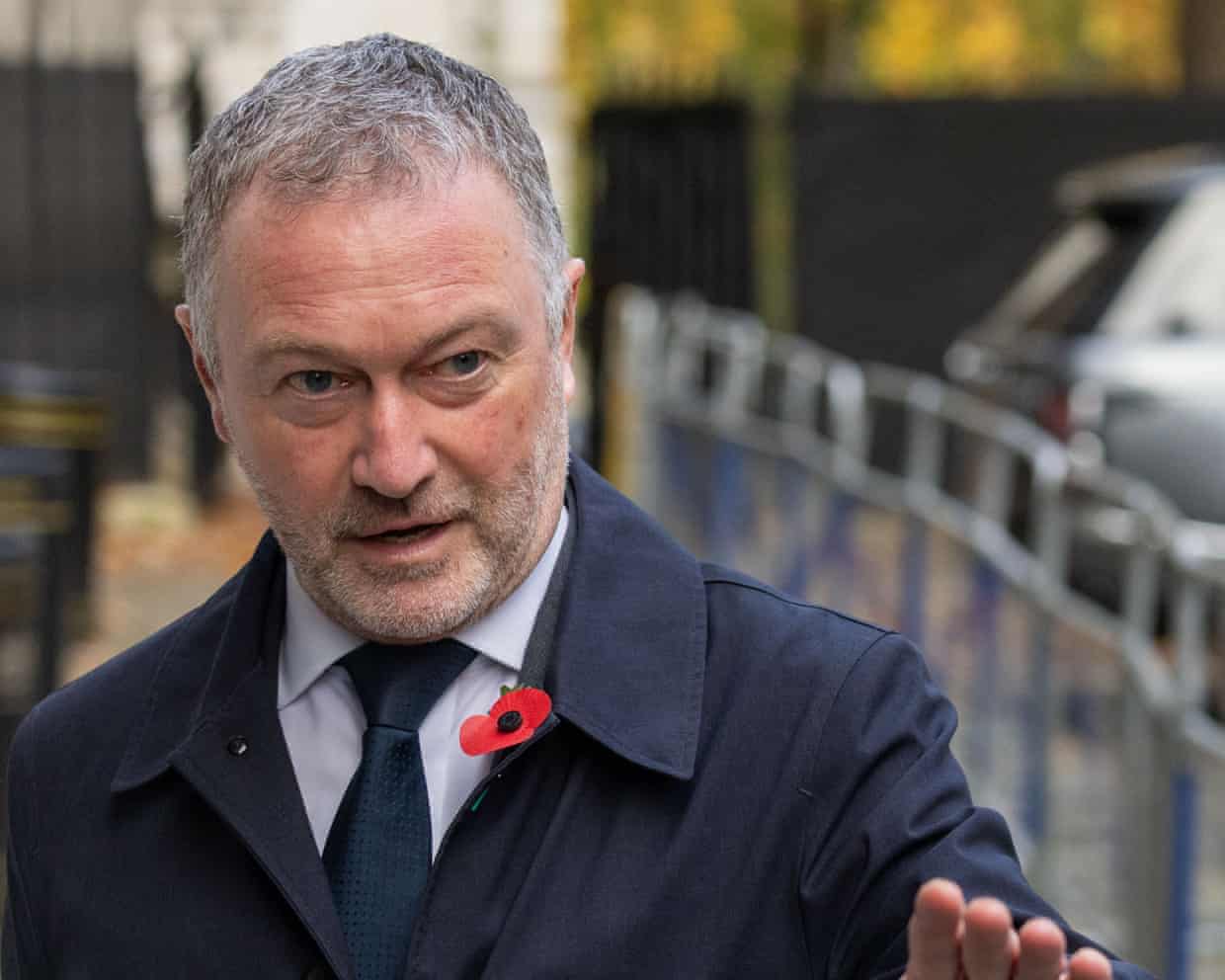
Steve Reed convenes Tower Hamlets envoys as concerns over council persist

‘Are you building communities or just houses?’: human cost of Birmingham council’s plans for Druids Heath estate

Ultra-processed foods may help explain rising bowel cancer in under-50s, study suggests
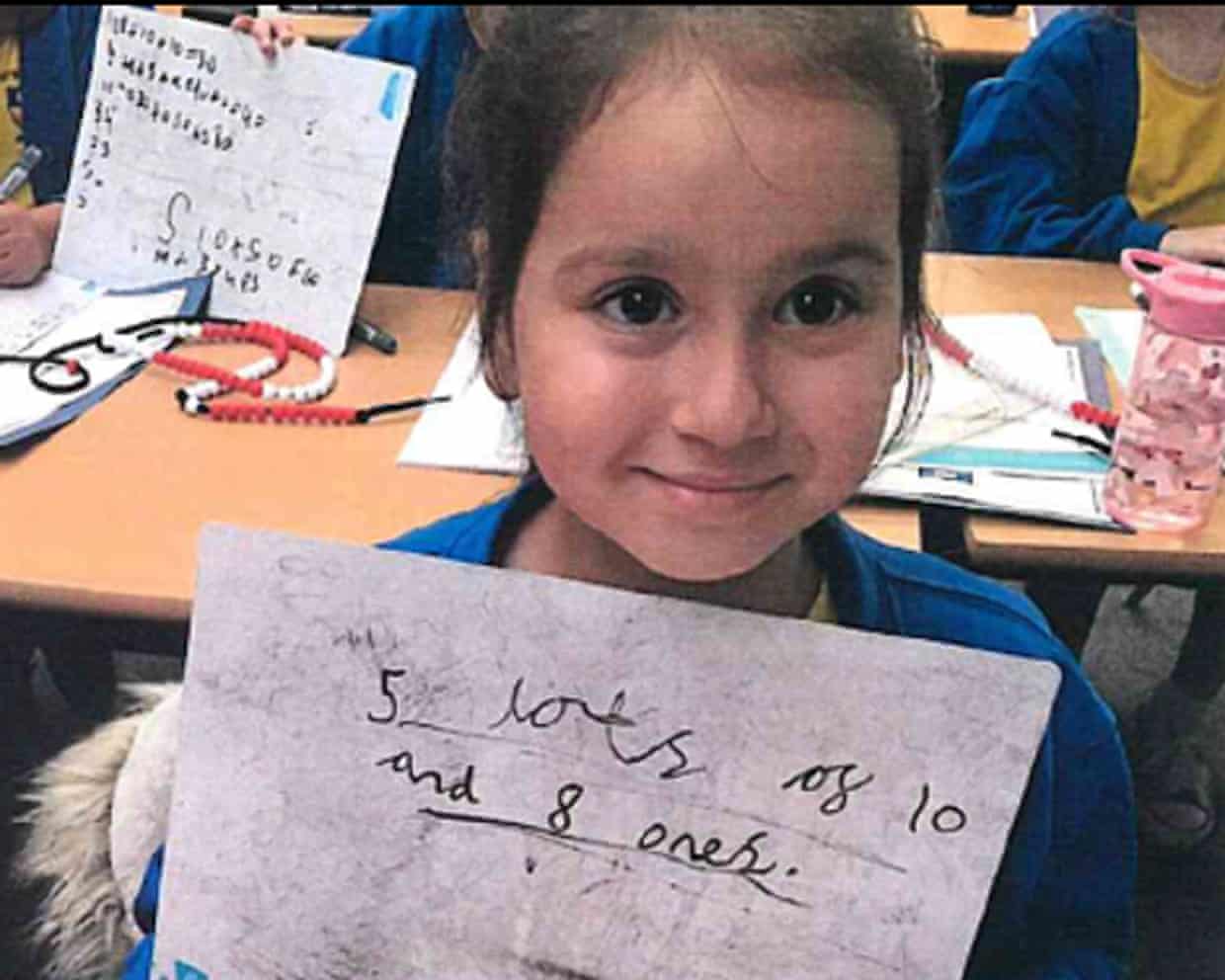
Council staff visited wrong address day before Sara Sharif’s murder, review finds

The rapid rise of renters in their 60s: ‘I hate the idea of house-sharing – but I have no choice’

Deaths linked to antibiotic-resistant superbugs rose 17% in England in 2024